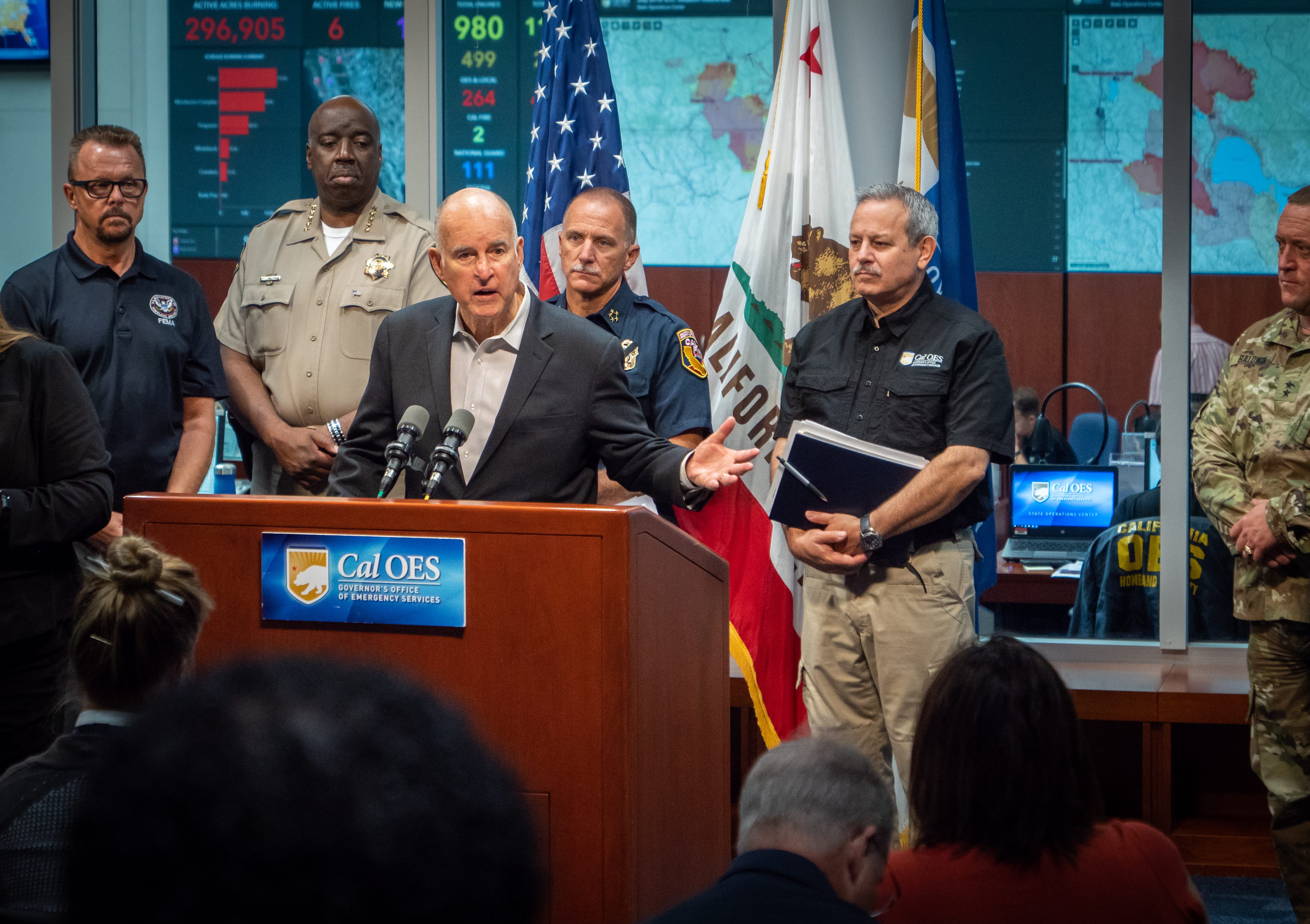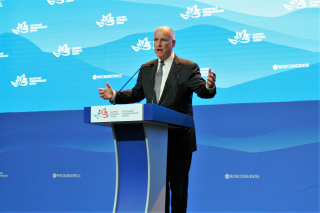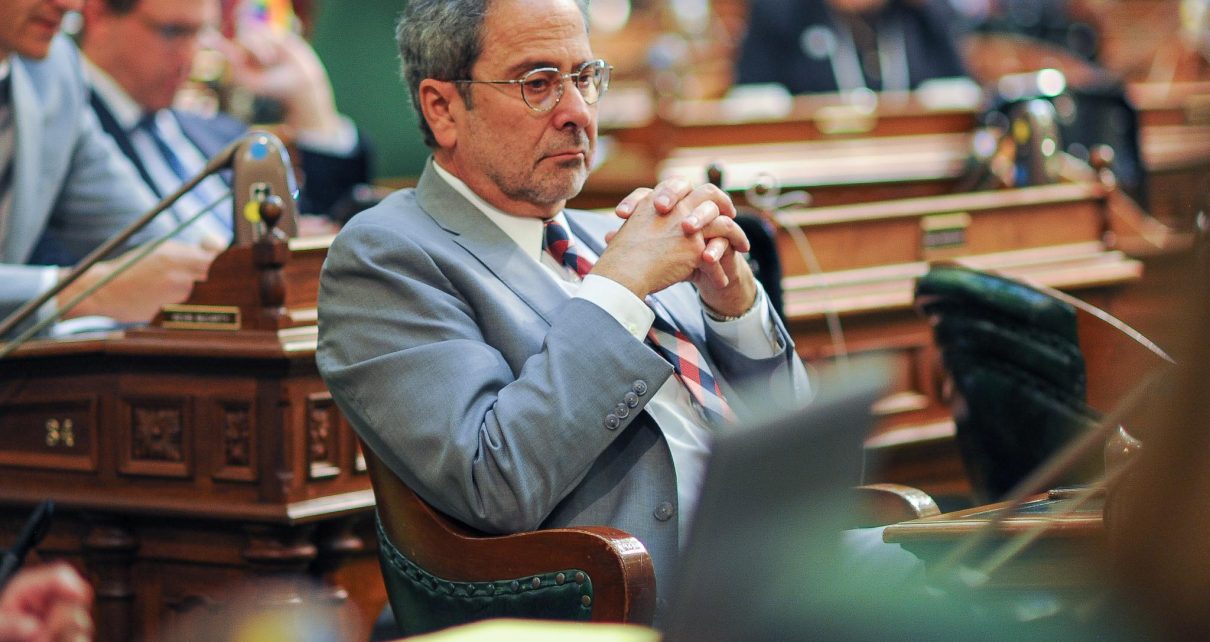
Assemblyman Richard Bloom. (Photo: Kevin Sanders for California Globe)
Lawmakers Kill $3.5 Billion Wildfire And Climate Change Bill
AB 1659 violated the the 72 hour in-print rule, introduced only 5 days ago
By Evan Symon, August 31, 2020 5:52 pm
On Sunday, a bill that would have raised $3.5 billion in wildfire and climate change projects by extending utility fees, as well as establish funds to pay for expenditure plans, was halted by Lawmakers only 5 days after being introduced to the Senate.
Billions of dollars on the line to fight wildfires and climate change
Assembly Bill 1659, authored by Assemblyman Richard Bloom (D-Santa Monica), would have required the Natural Resources Agency to come up with an extensive wildfire risk and public safety plan to better handle wildfires. A fund known as the Wildfire Prevention and Community Resilience Fund would then be established, getting an initial $500 million block of funding from the Surplus Money Investment Fund.
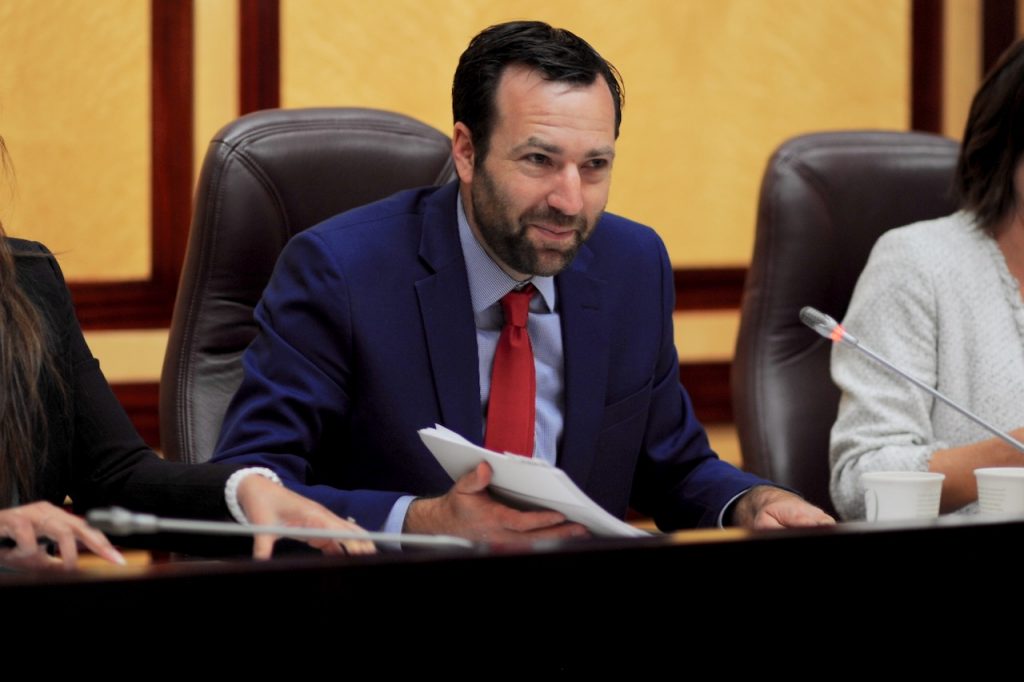
Mandatory utility fees, primarily from large electrical companies, would then finance $3 billion worth of bonds for the Wildfire Prevention and Community Resilience Fund to be paid back by 2036. Another fund, the Department of Water Resources Charge Fund, would be used to collect bond proceeds and revenues.
Assemblyman Bloom, along with 9 other Democratic Assembly members and 28 Senators, co-authored the bill as a response to the recent Northern California wildfires as a way to build up more prevention measures and have emergency needs and services in place for the next large wildfires.
“We’ve had 1.7 million acres that have already burned this year and we haven’t even gotten to the peak of wildfire season,” said Senator Ben Allen (D-Santa Monica) on Sunday. “Either we’re going to continue spending money to fight the fires and help communities rebuild and address the devastation after the fact, or we can try to act now to be more proactive.”
GOP, many Dems strongly against AB 1659
While many Democratic Legislators were supportive of the bill, Republicans and several Democrats were against AB 1659 because of the utility ratepayer fee being used to fund it, as well as questions over whether the bill was even needed, and whether less than a week was ample time to properly review such a piece of possible legislation. Utility companies and taxpayer groups had also strongly rejected the bill, influencing many to either vote against the bill or abstain from it.
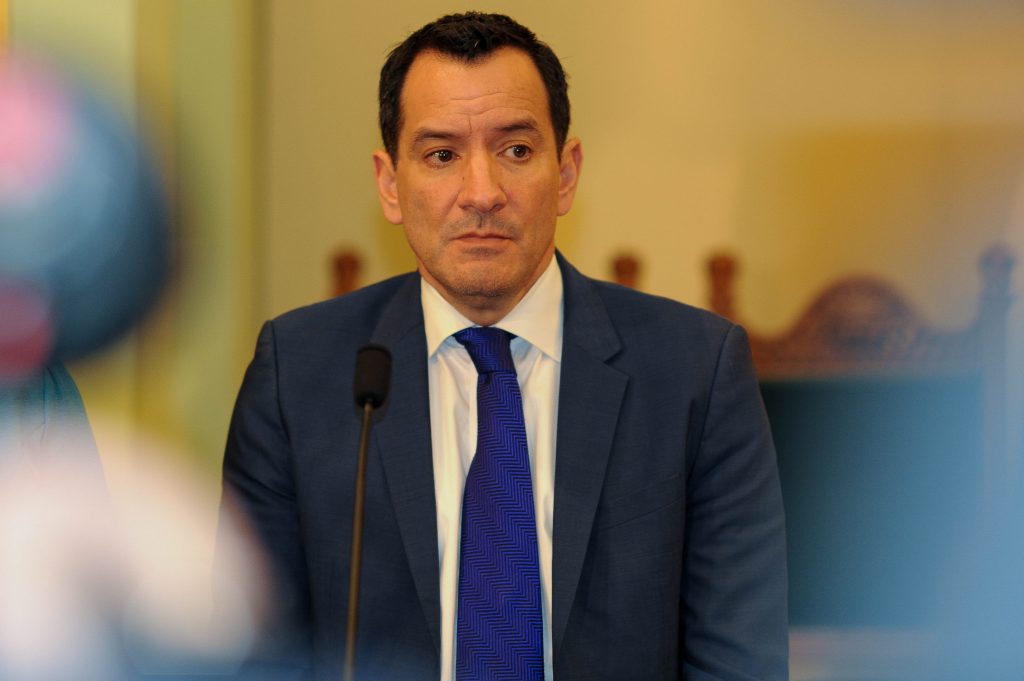
The large pushback resulted in AB 1659 barely passing in the Senate Energy, Utilities, and Communications Committee on Friday 7-3 with 3 abstentions. Many in the next committee to hear it, the Appropriations Committee, expressed doubt on the bills’ passage late last week, casting even more doubt. A last ditch effort to waive the 72 hour rule, a rule in place since 2016 which requires a bill to be active for 72 hours before it can be acted on, also failed when many top lawmakers, including Assembly Speaker Anthony Rendon (D-Lakewood), doubted that it constituted a big enough emergency.
“Given the governor’s office has not yet engaged with us on this proposal, I don’t believe it meets the bar for a waiver of the 72-hour rule,” explained Assemblyman Rendon during the weekend. “This rule is designed to provide transparency, and overturning it should be done sparingly. Wildfire prevention and climate change are important issues in California, and deserve thoughtful discussion to figure out potential funding proposals.”
“California dodged a bullet today”
Many lawmakers and staff members have scrambled since the 25th over AB 1659 as the push against it grew and grew.
“We had a lot of calls and emails come in over it,” “Dana” a State Capitol staffer, told the California Globe. “It takes a lot at the end of session to really find a singular bill that’s getting a lot of attention, but AB 1659 managed to do that. Usually it’s a hodgepodge of messages about a wide variety of bills, but during the last several days this has been a big focus.”
“The Legislator whom I work for, when they saw the stack of emails over the bill, with the bigger industries and influential people on top, gave an audible ‘Jesus Christ.'”
“They had been preparing all of them in case they reached floor votes, and it did the trick since it was killed yesterday. What really did it was stressing that there was not enough time to really look into the bill. That hit home for a lot of them.”
While a new plan to use cap-and-trade revenue to pay for $500 million in wildfire and climate change measures has been proposed by Senate Democrats, there is little time left to fully realize it.
“California dodged a bullet today,” wrote former utility company accountant Sherman King in an e-mail to the Globe. “Rates that high would have hurt utility companies and ratepayers alike. There are other ways to get wildfire funding. Increased rates are rarely ever undone.”
- Bill to Require Law Enforcement Disclosure if AI Was Used To Help Write Reports - August 7, 2025
- Gov. Newsom Files FOIA Request To ‘Expose True Cost’ Of L.A. Federal Troop Deployment for Anti-ICE Riots - August 6, 2025
- California Redistricting: How Newsom’s Plan Will Demolish Hard Fought GOP Gains - August 6, 2025


